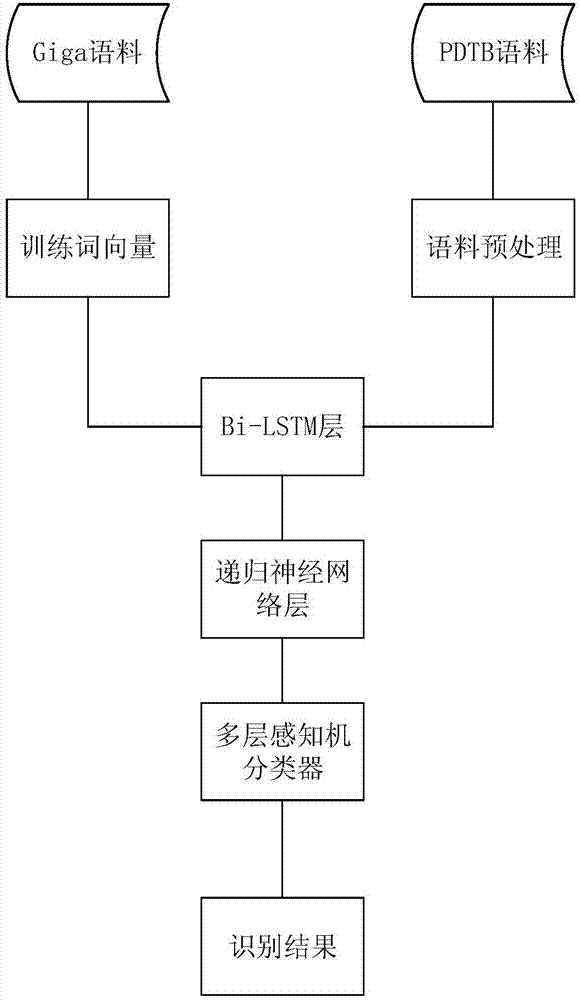Implicit discourse relation analyzing method based on recurrent neural network
A technology of recursive neural network and relationship analysis, applied in the field of implicit discourse relationship analysis and implicit discourse relationship analysis based on recursive neural network, can solve problems such as polysemy of words, sparse data, and no consideration of sentence coherence, etc. Achieve the effect of improving analysis accuracy and making up for misjudgments
- Summary
- Abstract
- Description
- Claims
- Application Information
AI Technical Summary
Problems solved by technology
Method used
Image
Examples
Embodiment Construction
[0033] The specific implementation manners of the present invention will be described in further detail below in conjunction with the accompanying drawings and examples.
[0034] figure 1 It is a system architecture diagram of the method of the present invention. This embodiment first introduces the construction process of Bi-LSTM, then introduces the synthesis process based on the syntactic tree recurrent neural network, and finally introduces the training method of the entire model.
[0035] Carry out corpus preprocessing according to step 1, and the implementation steps are as follows:
[0036] (1) Count the occurrence frequency of each word in the PDTB2.0 corpus, and sort according to the frequency, take the top 20,000 words with the highest frequency and store them as a dictionary, and mark other words as ;
[0037] (2) For the syntactic tree of PDTB2.0 corpus annotation, use the binarization method in Stanford Parser to perform binarization, and then delete...
PUM
 Login to View More
Login to View More Abstract
Description
Claims
Application Information
 Login to View More
Login to View More - R&D
- Intellectual Property
- Life Sciences
- Materials
- Tech Scout
- Unparalleled Data Quality
- Higher Quality Content
- 60% Fewer Hallucinations
Browse by: Latest US Patents, China's latest patents, Technical Efficacy Thesaurus, Application Domain, Technology Topic, Popular Technical Reports.
© 2025 PatSnap. All rights reserved.Legal|Privacy policy|Modern Slavery Act Transparency Statement|Sitemap|About US| Contact US: help@patsnap.com



